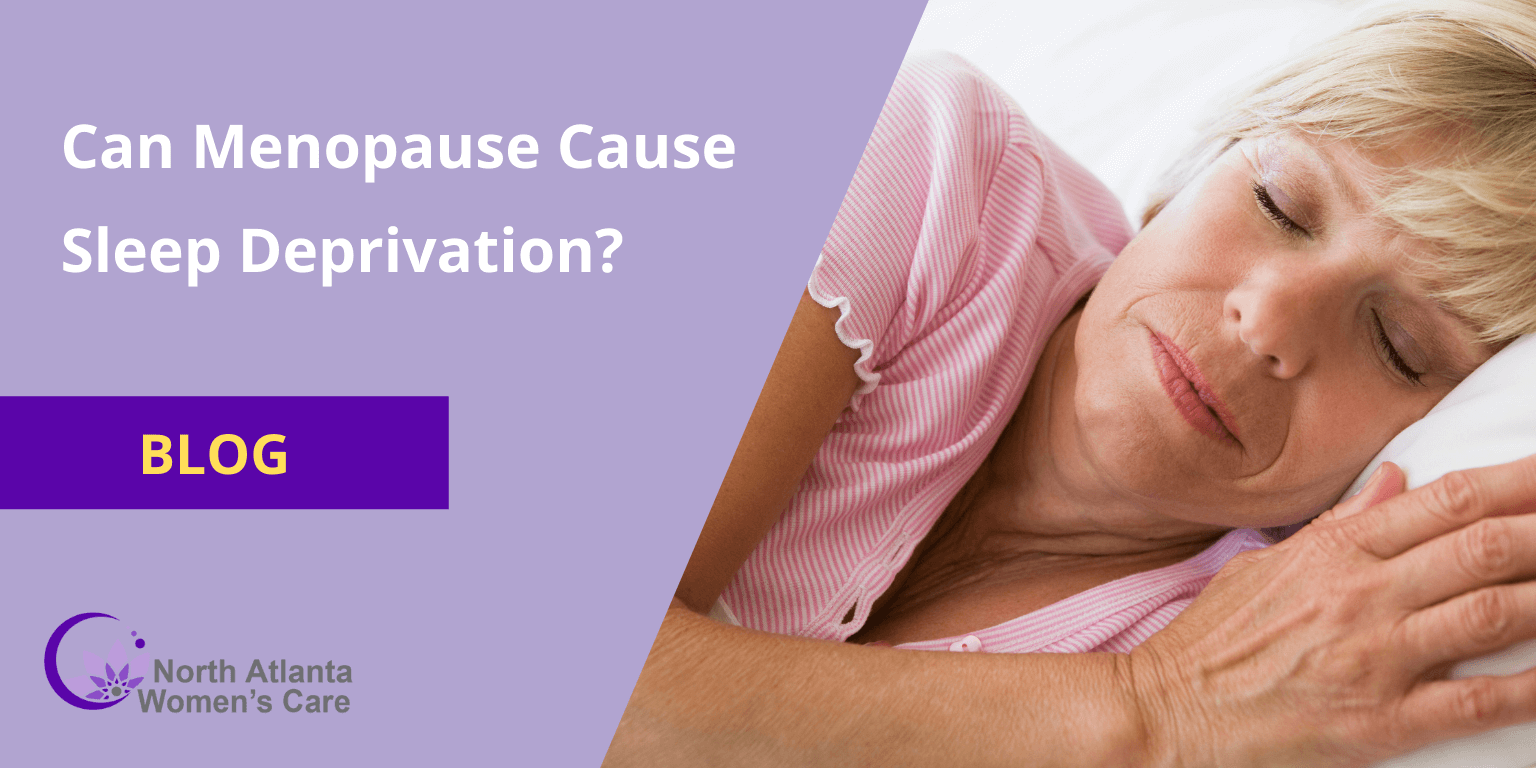Can Menopause Cause Sleep Deprivation?

During perimenopause, women's ovaries gradually decrease the production of estrogen and progesterone hormones. These hormonal changes can cause sleep issues that often continue even after menopause. However, menopause sleep problems can be treated with hormone replacement therapy and other lifestyle changes.
Why Can't I Sleep During Menopause?
Menopause-related symptoms (including sleep problems) vary from woman to woman throughout the perimenopausal to postmenopausal period. Generally, your sleep can be influenced by your health and other medical conditions when you move through menopause.
Causes of Sleep Disturbances
Hormones
The decreased production of estrogen and progesterone hormones can contribute to night sweats, hot flashes, anxiety, and depression. While anxiety can lead to difficulty sleeping, depression is mainly associated with early morning awakening and non-restorative sleep.
However, menopausal sleep disturbance may also be the underlying cause of depression and anxiety. Estrogen decline can lead to joint aches and urinary incontinence at night, causing sleep disturbances. Progesterone has a sleep-inducing effect, so decreased production of this hormone can impact your sleep. Melatonin, another sleep hormone, is influenced by age and a decrease in estrogen and progesterone levels, contributing to sleep issues.
Sleep Apnea
Hot flashes and night sweats are associated with an increased risk of sleep apnea, which is especially more common in women who have had surgical menopause than those with natural menopause. Your weight also plays a vital role in inducing sleep apnea. Progesterone affects muscle activity at the back of your throat and stimulus for breathing. Therefore, decreased progesterone levels contribute to partial upper airway obstruction and reduced breathing. Besides loud snoring and gasping, sleep apnea can also cause insomnia, headache, daytime fatigue, depression, and anxiety.
Restless Legs Syndrome (RLS)
Symptoms of restless legs syndrome are described as tingling and creepy, crawly sensations in the legs at night. Though RLS is commonly linked with menopause, however, it has been determined to not be the cause.
Types of Menopause Sleep Disturbances
Menopause can lead to various sleep disturbances, including:
- Early morning wakening
- Fatigue/sleepiness during the day
- Less total sleep time
- Difficulty sleeping
- Disturbed sense of well-being
- Difficulty staying asleep (awakening during the night)
- The overall quality of sleep (non-restorative)
Are There Any Treatments Available to Improve Sleep?
Following these simple lifestyle changes can help you sleep well:
- Exercise regularly
- Eat a healthy, well-balanced diet
- Manage stress
- Be socially active
If these changes do not give you the desired results, you can speak with your OBGYN about hormone replacement therapy.
Hormone Replacement Therapy (HRT)
In HRT, hormones such as estrogen, progesterone, or a combination of both are delivered as pills, skin patches, or topical gels to treat menopause symptoms. HRT is the primary course of treatment recommended for menopause symptoms.
Systemic hormone therapy in which estrogen is introduced into the body through pills, gel, spray foam or skin patches is the most effective treatment for some menopausal symptoms. Besides alleviating vaginal conditions, such as soreness, irritation, dryness, and discomfort during intercourse, it can also relieve hot flashes and night sweat, helping you sleep better.
However, those who are unable to take HRT can consider other treatments and medications. One option is a CPAP machine.
Continuous Positive Airway Pressure (CPAP)
A CPAP machine is recommended if sleep apnea is the reason for your sleep disturbance. It involves wearing a nasal or face mask (during sleep) connected to a pump, which provides a positive flow of air into your nasal passages to keep your airway open.
If sleep disturbance is your major menopausal symptom, hormone replacement therapy can help. Contact us today at North Atlanta Women's Care if you want to learn more about hormone replacement therapy and whether or not it suits you. We have years of experience and expertise in treating menopausal symptoms with HRT that ensures desired results.
Comments are closed

